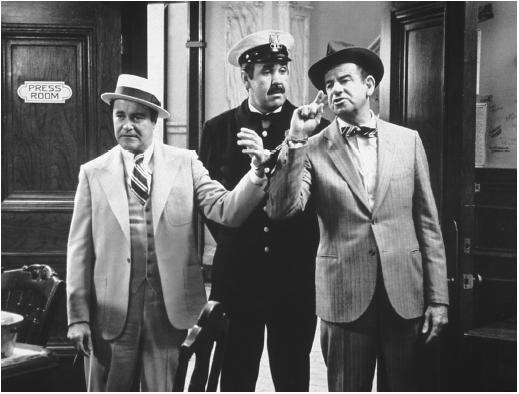 The Merchant of Venice di Michael Radford (2004) Dalla commedia di William Shakespeare, Sceneggiatura di Michael Radford Interpreti e personaggi: Al Pacino (Shylock), Jeremy Irons (Antonio), Joseph Fiennes (Bassanio), Lynn Collins (Porzia), Zuleikha Robinson (Gessica), Kris Marshall (Graziano), Charlie Cox (Lorenzo), Heather Goldenhersh (Nerissa), Mackenzie Crook (Lancillotto Gobbo), John Sessions (Salerio), Gregor Fisher (Salanio), Ron Cook (Il Vecchio Gobbo), Allan Corduner (Tubal), Anton Rodgers (Il Doge), David Harewood (Il Principe del Marocco), Antonio Gil (Il Principe d'Aragona) Musica: Jocelyn Pook (su parole di John Milton, William Shakespeare, Edgar Allan Poe) Fotografia: Benoît Delhomme Art Direction:Jon Bunker, Tamara Marini Set Decoration: Gillie Delap Costume Design: Sammy Sheldon (138 minuti) Rating IMDb: 7.2
The Merchant of Venice di Michael Radford (2004) Dalla commedia di William Shakespeare, Sceneggiatura di Michael Radford Interpreti e personaggi: Al Pacino (Shylock), Jeremy Irons (Antonio), Joseph Fiennes (Bassanio), Lynn Collins (Porzia), Zuleikha Robinson (Gessica), Kris Marshall (Graziano), Charlie Cox (Lorenzo), Heather Goldenhersh (Nerissa), Mackenzie Crook (Lancillotto Gobbo), John Sessions (Salerio), Gregor Fisher (Salanio), Ron Cook (Il Vecchio Gobbo), Allan Corduner (Tubal), Anton Rodgers (Il Doge), David Harewood (Il Principe del Marocco), Antonio Gil (Il Principe d'Aragona) Musica: Jocelyn Pook (su parole di John Milton, William Shakespeare, Edgar Allan Poe) Fotografia: Benoît Delhomme Art Direction:Jon Bunker, Tamara Marini Set Decoration: Gillie Delap Costume Design: Sammy Sheldon (138 minuti) Rating IMDb: 7.2Solimano
Il Principe del Marocco (David Harewood) e il Principe d'Aragona (Antonio Gil) sono stati sconfitti nella prova degli scrigni. Adesso tocca a Bassanio (Joseph Fiennes), ma c'è un antefatto, come sa chi ha letto il testo di Shakespeare: Bassanio arriva un po' di tempo prima della prova, e Porzia (Lynn Collins) e Bassanio, Nerissa (Heather Goldenhersh) e Graziano (Kris Marshall) hanno modo di conoscersi. Nella immagine in apertura di post si vede la nave di Bassanio che viaggia verso Belmonte, la residenza di Porzia.


 In queste tre immagini si vede la gioia ed il turbamento di Porzia all'arrivo di Bassanio e l'aspetto di Bassanio e di Graziano appena giunti a Belmonte.
In queste tre immagini si vede la gioia ed il turbamento di Porzia all'arrivo di Bassanio e l'aspetto di Bassanio e di Graziano appena giunti a Belmonte.La traduzione dal testo di William Shakespeare è quella di Paola Ojetti (BUR, 1950). Inserirò il testo inglese nei commenti.
ATTO TERZO
Scena seconda
A Belmonte, in casa di Porzia. (Entrano BASSANIO, PORZIA, GRAZIANO, NERISSA e il seguito).
...
PORZIA Avanti, dunque! Dentro uno di essi io sto chiusa. Se mi amate, mi troverete. Nerissa e gli altri si scostino. La musica accompagni la sua scelta. Così, se perderà, la sua fine sarà come quella del cigno che si spegne nel canto; e perché il raffronto sia più preciso dirò che i miei occhi saranno il suo ruscello, anzi il suo liquido letto di morte. E se vincesse? Che sarebbe allora la musica? Sarebbe pari agli squilli di tromba che accompagnano gli inchini dei sudditi fedeli davanti al monarca appena incoronato; sarebbe uguale ai dolci suoni che sul far del giorno giungono lenti all'orecchio dello sposo sognante e lo chiamano alle nozze. Va, e, se non ha fierezza, ha tanto più amore del giovane Alcide che liberò la vergine offerta da Troia piangente quale tributo al mostro marino: io mi offro al sacrificio; le altre, discoste, sono le donne dardanie che, in lacrime, vengono ad assistere al resultato della prova. Vai, Ercole! che tu viva e io vivrò. Io che assisto alla battaglia sono più sgomenta di te che la combatti.


(mentre Bassanio osserva gli scrigni commentando tra sé)
Dove cresce il nostro amore,
nella testa oppur nel cuore?
Da chi ha vita e nuovo ardore
Dimmi dimmi:
Se dagli occhi è fecondato
dallo sguardo è poi allevato,
per spirare nella cuna dove bimbo prese fiato.
Suona a morto la campana,
Senti senti: din din don din.
 TUTTI Din don campana.
TUTTI Din don campana.BASSANIO Sì, l'apparenza può essere inferiore alla realtà. Gli ornamenti sempre ingannano l'uomo. Non v'è in tribunale una causa, per quanto losca e cattiva, della quale una voce piacente non riesca a mascherare il male. E in religione qual è l'eresia che un austero sembiante non riesca a consacrare e a giustificare con la citazione di un testo sacro? Il vizio più fondo si presenta sempre con qualche segno di virtù. Quanti vigliacchi col cuore più debole d'uno scalino di sabbia hanno sul mento una barba degna d'Ercole o dell'accigliato Marte, e in corpo un fegato più bianco del latte! Del valore non hanno che la schiuma, e vogliono farsi credere terribili. Considera la bellezza e vedrai che devi comprarla a peso; ma essa è tanto miracolosa che fa leggero chi più ne ha. Tali sono quelle ciocche d'oro, ricciolute e ondeggianti, che giocano libere col vento sopra un'artefatta bellezza, e spesso si sa che sono la dote di un'altra testa perché la cute che le nutrì è ormai nel suo sepolcro. L'ornamento è come la riva insidiosa davanti a un periglioso mare, è come un bel volto che nasconde un sembiante di negra, è insomma una finta verità con cui gli astuti intrappolano i saggi. Dunque, oro vistoso e duro cibo di Mida, te non ti voglio; e nemmeno voglio te, pallido e vile mezzano tra uomo e uomo; ma voglio te, povero piombo, usato più per minacciare che per allettare, voglio te perché il tuo squallore mi commuove più di tutta quell'eloquenza. Ti scelgo e sii tu la mia gioia.

 PORZIA Ogni altra passione svanisce nell'aria: ansiosi pensieri, disperazioni improvvise, brividi di spavento e livide gelosie! Mòderati, amore; frena la tua estasi, tempera la tua gioia, rattieni i tuoi eccessi. Troppo grande è la tua benedizione: fa che tu sia minore e che non abbia a sopraffarmi.
PORZIA Ogni altra passione svanisce nell'aria: ansiosi pensieri, disperazioni improvvise, brividi di spavento e livide gelosie! Mòderati, amore; frena la tua estasi, tempera la tua gioia, rattieni i tuoi eccessi. Troppo grande è la tua benedizione: fa che tu sia minore e che non abbia a sopraffarmi.BASSANIO Ma che cosa c'è qui? (Aprendo lo scrigno di piombo) Il ritratto della bella Porzia? Quale semidio ha potuto arrivare tanto vicino alla creatura viva? Questi occhi si muovono? O sembrano muoversi solo perché si muovono i miei?

 Ecco le sue labbra socchiuse e tra esse quel soffio che sa di miele, proprio di miele perché soltanto una dolce barriera potrebbe dividere due così dolci amici. Qui nei suoi capelli il pittore ha fatto come il ragno, tessendo con essi una maglia dorata per pigliarvi il cuore degli uomini più presto dei moscerini in una ragnatela. Ma questi occhi... Come ha potuto guardarli tanto a lungo da dipingerli così bene? Mi pare che appena uno ne fosse stato dipinto, esso da solo avrebbe avuto il potere di rubare tutt'e due gli occhi del pittore e di restare perciò scompagnato. Eppure, solo a guardarlo, l'oggetto della mia lode tradisce questo suo vano riflesso. tanto pallido al confronto della realtà. Ecco il foglio che contiene e rissume la mia fortuna. (Legge)
Ecco le sue labbra socchiuse e tra esse quel soffio che sa di miele, proprio di miele perché soltanto una dolce barriera potrebbe dividere due così dolci amici. Qui nei suoi capelli il pittore ha fatto come il ragno, tessendo con essi una maglia dorata per pigliarvi il cuore degli uomini più presto dei moscerini in una ragnatela. Ma questi occhi... Come ha potuto guardarli tanto a lungo da dipingerli così bene? Mi pare che appena uno ne fosse stato dipinto, esso da solo avrebbe avuto il potere di rubare tutt'e due gli occhi del pittore e di restare perciò scompagnato. Eppure, solo a guardarlo, l'oggetto della mia lode tradisce questo suo vano riflesso. tanto pallido al confronto della realtà. Ecco il foglio che contiene e rissume la mia fortuna. (Legge)

Fu la tua scelta sicura:
Abbi tu degna ventura.
La fortuna che ti abbraccia
Ti dia pace e non tormenti.
Se con essa ti contenti,
Se felicità ne senti,
Corri alla tua donna, e, preda
Di un tuo bacio, si conceda.
Cortese foglio. Bella signora, permettete? (La bacia) Vengo, secondo quel che c'è scritto, a dare e a ricevere. Come uno di due che si contendano un premio, crede d'aver vinto, perché ode l'applauso e il grido unanime, ma ancora stordito teme che quel frastuono non sia per lui, così, signora tre volte bella, io dubito ancora che non sia vero quello che vedo, e dovete confermarmelo, firmarmelo, ratificarmelo voi.




2 commenti:
Ecco il testo di William Shakespeare:
Por. Away then, I am lockt in one of them,
If you doe loue me, you will finde me out.
Nerryssa and the rest, stand all aloofe,
Let musicke sound while he doth make his choise,
Then if he loose he makes a Swan-like end,
Fading in musique. That the comparison
May stand more proper, my eye shall be the streame
And watrie death-bed for him: he may win,
And what is musique than? Than musique is
Euen as the flourish, when true subiects bowe
To a new crowned Monarch: Such it is,
As are those dulcet sounds in breake of day,
That creepe into the dreaming bride-groomes eare,
And summon him to marriage. Now he goes
With no lesse presence, but with much more loue
Then yong Alcides, when he did redeeme
The virgine tribute, paied by howling Troy
To the Sea-monster: I stand for sacrifice,
The rest aloofe are the Dardanian wiues:
With bleared visages come forth to view
The issue of th' exploit: Goe Hercules,
Liue thou, I liue with much more dismay
I view the sight, then thou that mak'st the fray.
Here Musicke. A Song the whilst Bassanio comments on the
Caskets to
himselfe.
Tell me where is fancie bred,
Or in the heart, or in the head:
How begot, how nourished. Replie, replie.
It is engendred in the eyes,
With gazing fed, and Fancie dies,
In the cradle where it lies:
Let vs all ring Fancies knell.
Ile begin it.
Ding, dong, bell
All. Ding, dong, bell
Bass. So may the outward showes be least themselues
The world is still deceiu'd with ornament.
In Law, what Plea so tainted and corrupt,
But being season'd with a gracious voice,
Obscures the show of euill? In Religion,
What damned error, but some sober brow
Will blesse it, and approue it with a text,
Hiding the grosenesse with faire ornament:
There is no voice so simple, but assumes
Some marke of vertue on his outward parts;
How manie cowards, whose hearts are all as false
As stayers of sand, weare yet vpon their chins
The beards of Hercules and frowning Mars,
Who inward searcht, haue lyuers white as milke,
And these assume but valors excrement,
To render them redoubted. Looke on beautie,
And you shall see 'tis purchast by the weight,
Which therein workes a miracle in nature,
Making them lightest that weare most of it:
So are those crisped snakie golden locks
Which makes such wanton gambols with the winde
Vpon supposed fairenesse, often knowne
To be the dowrie of a second head,
The scull that bred them in the Sepulcher.
Thus ornament is but the guiled shore
To a most dangerous sea: the beautious scarfe
Vailing an Indian beautie; In a word,
The seeming truth which cunning times put on
To intrap the wisest. Therefore then thou gaudie gold,
Hard food for Midas, I will none of thee,
Nor none of thee thou pale and common drudge
'Tweene man and man: but thou, thou meager lead
Which rather threatnest then dost promise ought,
Thy palenesse moues me more then eloquence,
And here choose I, ioy be the consequence
Por. How all the other passions fleet to ayre,
As doubtfull thoughts, and rash imbrac'd despaire:
And shuddring feare, and greene-eyed iealousie.
O loue be moderate, allay thy extasie,
In measure raine thy ioy, scant this excesse,
I feele too much thy blessing, make it lesse,
For feare I surfeit
Bas. What finde I here?
Faire Portias counterfeit. What demie God
Hath come so neere creation? moue these eies?
Or whether riding on the bals of mine
Seeme they in motion? Here are seuer'd lips
Parted with suger breath, so sweet a barre
Should sunder such sweet friends: here in her haires
The Painter plaies the Spider, and hath wouen
A golden mesh t' intrap the hearts of men
Faster then gnats in cobwebs: but her eies,
How could he see to doe them? hauing made one,
Me thinkes it should haue power to steale both his
And leaue it selfe vnfurnisht: Yet looke how farre
The substance of my praise doth wrong this shadow
In vnderprising it, so farre this shadow
Doth limpe behinde the substance. Here's the scroule,
The continent, and summarie of my fortune.
You that choose not by the view
Chance as faire, and choose as true:
Since this fortune fals to you,
Be content, and seeke no new.
If you be well pleasd with this,
And hold your fortune for your blisse,
Turne you where your Lady is,
And claime her with a louing kisse
Bass. A gentle scroule: Faire Lady, by your leaue,
I come by note to giue, and to receiue,
Like one of two contending in a prize
That thinks he hath done well in peoples eies:
Hearing applause and vniuersall shout,
Giddie in spirit, still gazing in a doubt
Whether those peales of praise be his or no.
So thrice faire Lady stand I euen so,
As doubtfull whether what I see be true,
Vntill confirm'd, sign'd, ratified by you.
saludos
Solimano
Questa Lynn Collins non la conoscevo. Ha un viso davvero singolare, in certe pose ricorda un po' Judi Dench. Chissà che carriera sta facendo...
Posta un commento